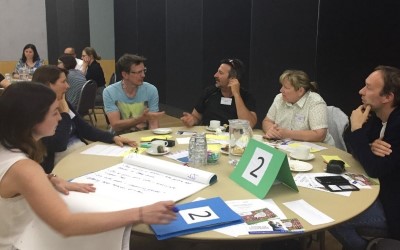Search

News & Events
Kids connect at diabetes campKids living with Type 1 Diabetes got to hang out with super heroes and like-minded peers at the Diabetes WA and Princess Margaret Hospital (now known as Perth Children’s Hospital) kids’ camp in Bicton recently.

News & Events
Do you have the power?Volunteers are needed for the upcoming camp for 11 and 12-year-olds living with Type 1 Diabetes.

News & Events
Community Conversation wrap upThe Children's Diabetes Centre recently held its first-ever Community Conversation for the diabetes community to have their say on issues important to them.

News & Events
Patients hit for six by cricket visitPlayers from Perth Scorchers’ KFC Big Bash team paid an unexpected visit to cricket fans in PMH’s diabetes ward recently.

News & Events
Urgent device recallMedtronic has issued an urgent medical device recall of their MiniMed infusion sets for potentially over-delivering insulin.

News & Events
CoDiab studyKayla Hesketh is the first patient recruited to a new study being carried out by the Children’s Diabetes Centre and University Children’s Hospital Basel.

News & Events
We want to hear from youWe’d love to hear your feedback on our website and newsletter so we can make it more informative and interesting for WA’s Type 1 Diabetes community.


News & Events
Exercise and blood sugar levels - we need you!Young people with Type 1 Diabetes are needed for a new study looking at whether blood sugar levels affect exercise performance.

News & Events
Best practice in diabetes careLast month, our Centre's co-Director Liz Davis, attended the National Association of Diabetes Centre's (NADC) Symposium in Sydney.
